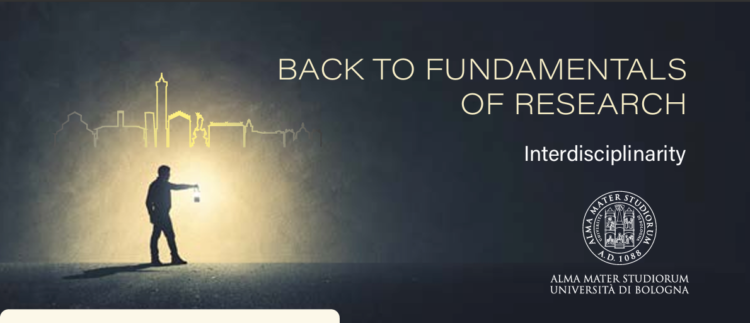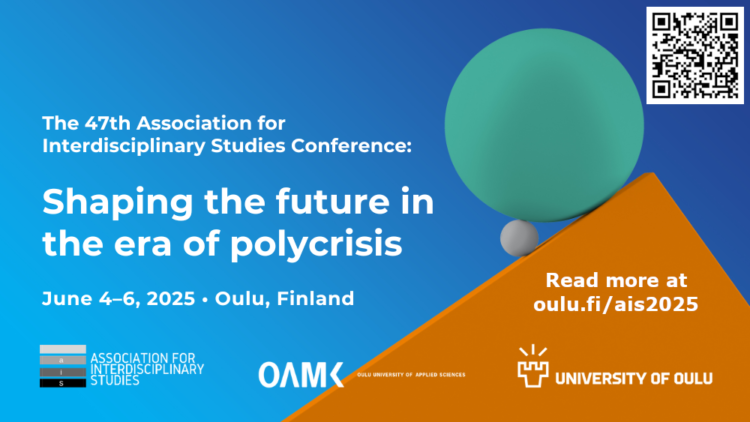SHAPE-ID member Prof Catherine Lyall was a keynote speaker at the University of Bologna's international…
SHAPE-ID and University of Deusto host workshop on Artificial Intelligence for Social Good
The SHAPE-ID learning case workshop series was brought to a very satisfying conclusion on 19 October with a stakeholder-focused workshop on Artificial Intelligence for Social Good, co-organised by SHAPE-ID partner ISINNOVA and the University of Deusto in Bilbao. Covid-19 made it impossible for us to meet in Bilbao as originally planned, but the online workshop was nevertheless highly engaged and enjoyable – an example of how stimulating discussion and collaboration can continue in a virtual setting.
Informed by the ‘6i’ model of research and innovation, envisaged and led by Toni Caro, to combine interdisciplinarity, intersectoral engagement and an international outlook, the workshop brought together researchers and other stakeholders working on Artificial Intelligence projects to consider how perspectives from the Social Sciences and Humanities, as well as from societal stakeholders including clinicians, patients and municipal authorities could be integrated into AI projects to ensure we can move towards trustworthy human-centric AI development, with a greater transparency and accountability of AI applications vis-a-vis sustainable development goals.
The workshop began with a warm welcome from Rosa Santibañez, Vice-Rector for Research and Innovation, University of Deusto, followed by introductions from Work Package leader Carlo Sessa (ISINNOVA) on SHAPE-ID and the “ladder of trustworthy AI requirements” to integrate humanities and hard sciences for building human-centric AI applications, and from Antonia Caro González (Head of the International Research Project Office, University of Deusto) on the 6i model.


Following these scene-setting presentations, participants joined one of five breakout groups in which three AI projects were presented by project representatives, who also had the opportunity to pose questions to the participants on how to integrate key stakeholder and SSH perspectives to ensure ethical technology development and adoption. The following projects were represented:
ATELIER (AmsTErdam BiLbao cItizen drivEn smaRt cities) is a smart city project that demonstrates Positive Energy Districts (PEDs) within 8 European cities with sustainability and carbon neutrality as guiding ambitions applying, among others, Artificial Intelligence-based tools.
BD4QoL (Big Data Models and Intelligent tools for Quality of Life monitoring and participatory empowerment of head and neck cancer (HNC) survivors) aims to improve HNC survivors’ quality of life by developing a person-centred monitoring and follow-up plan. It will use Artificial Intelligence and Big Data collected from mobile devices, in combination with multi-source clinical and socioeconomic data and patients’ reported outcomes.
TAILOR_EU (Trustworthy Artificial Intelligence in European Law enforcement) is an interdisciplinary, international, and cross-sectoral consortium of 13 partners from Law Enforcement Agencies (LEAs), Civil Society and academia, working together to address the challenges related to the ethical, societal, legal and organisational aspects of using Artificial Intelligence in support of Law Enforcement.
The workshop aimed to generate impact for all involved – for SHAPE-ID, to see the 6i model in practice and engage participants to develop a better understanding of models and practices for inter- and transdisciplinarity, particularly with strong stakeholder engagement; for the project representatives, to gain insights from other participants into how the projects can benefit from the inputs of different disciplines or sectors to address key concerns; and finally, to make an overall contribution to the debate on how AI can work for societal good.


We will publish some insights from the workshop in a blog post soon (you can follow us on Twitter and Facebook) and do sign up for our mailing list at https://www.shapeid.eu/contact/ if you’d like to receive our newsletter. In the meantime, check out our intermediate working paper presenting insights from the first three workshops held in December 2019 and January and February 2020. A full analysis of the workshop series will be available by the end of the year.



